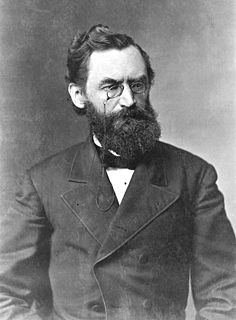A Quote by H. G. Wells
There's nothing wrong in suffering, if you suffer for a purpose. Our revolution didn't abolish danger or death. It simply made danger and death worthwhile.
Related Quotes
So to be sick unto death is, not to be able to die-yet not as though there were hope of life; no, the hopelessness in this case is that even the last hope, death, is not available. When death is the greatest danger, one hopes for life; but when one becomes acquainted with an even more dreadful danger, one hopes for death. So when the danger is so great that death has become one's hope, despair is the disconsolateness of not being able to die.
We are left with nothing but death, the irreducible fact of our own mortality. Death after a long illness we can accept with resignation. Even accidental death we can ascribe to fate. But for a man to die of no apparent cause, for a man to die simply because he is a man, brings us so close to the invisible boundary between life and death that we no longer know which side we are on. Life becomes death, and it is as if this death has owned this life all along. Death without warning. Which is to say: life stops. And it can stop at any moment.
Death is the only wise advisor that we have. Whenever you feel, as you always do, that everything is going wrong and you're about to be annihilated, turn to your death and ask if that is so. Your death will tell you that you're wrong; that nothing really matters outside its touch. Your death will tell you, 'I haven't touched you yet.
When the life of the nation was attempted, when the cause of liberty and human rights called for their aid, they rushed forth to rally under the banner they loved, with grand singleness of purpose and heroic devotion--leaving all behind them, to meet toil and danger, hunger, sickness, wounds, and death, for nothing but the sublime satisfaction of doing their duty to their country and to mankind.
[There are, in us] possibilities that take our breath away, and show a world wider than either physics or philistine ethics can imagine. Here is a world in which all is well, in spite of certain forms of death, death of hope, death of strength, death of responsibility, of fear and wrong, death of everything that paganism, naturalism and legalism pin their trust on.
Since the death instinct exists in the heart of everything that lives, since we suffer from trying to repress it, since everything that lives longs for rest, let us unfasten the ties that bind us to life, let us cultivate our death wish, let us develop it, water it like a plant, let it grow unhindered. Suffering and fear are born from the repression of the death wish.
She said, "It's not life or death, the labyrinth." "Um, okay. So what is it?" "Suffering," she said. "Doing wrong and having wrong things happen to you. That's the problem. Bolivar was talking about the pain, not about the living or dying. How do you get out of the labyrinth of suffering?... Nothing's wrong. But there's always suffering, Pudge. Homework or malaria or having a boyfriend who lives far away when there's a good-looking boy lying next to you. Suffering is universal. It's the one thing Buddhists, Christians, and Muslims are all worried about."
The first noble truth of the Buddha is that when we feel suffering, it doesn’t mean that something is wrong. What a relief. Finally somebody told the truth. Suffering is part of life, and we don’t have to feel it’s happening because we personally made the wrong move. In reality, however, when we feel suffering, we think that something is wrong. As long as we’re addicted to hope, we feel that we can tone our experience down or liven it up or change it somehow, and we continue to suffer a lot.
Where danger shews it self, apprehension cannot, without stupidity, be wanting; where danger is, sense of danger should be; and so much fear as should keep us awake, and excite our attention, industry, and vigour; but not to disturb the calm use of our reason, nor hinder the execution of what that dictates.


































